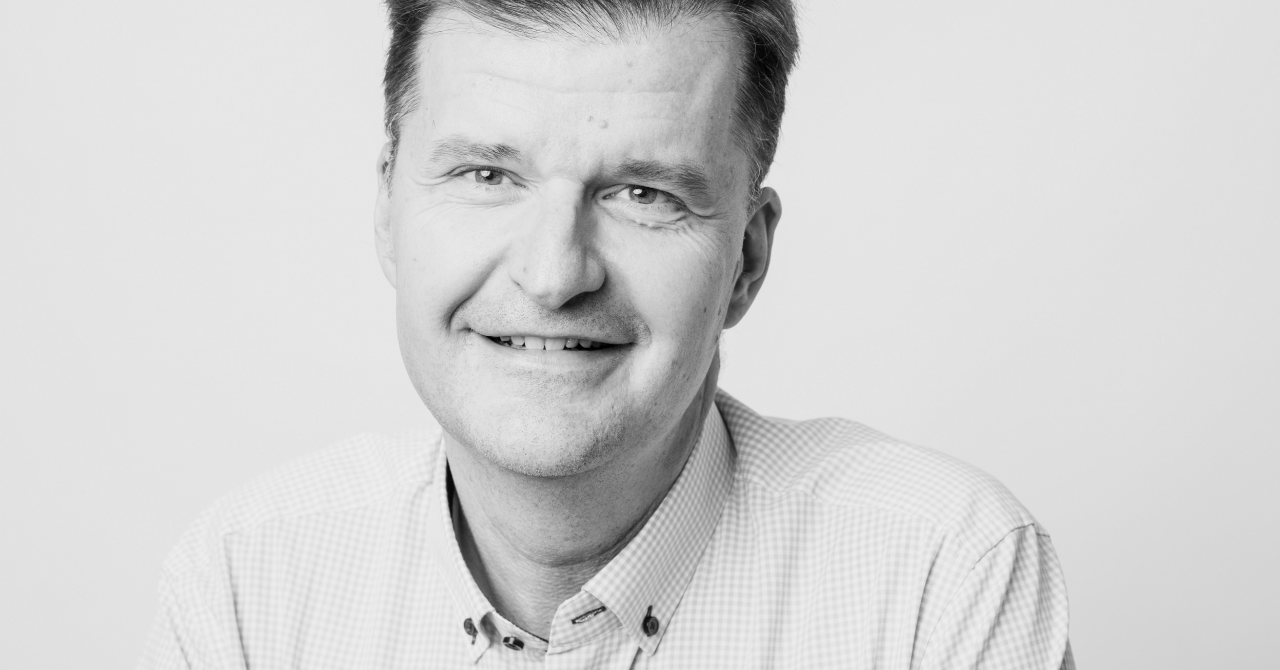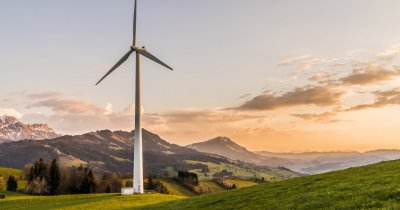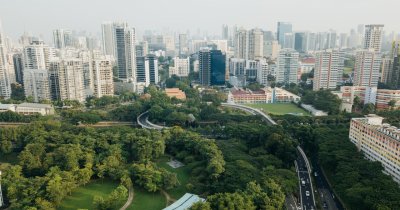Some of them envision sustainability as "meeting the needs of the present without compromising the ability of future generations to meet their needs".
This is at least what Frédéric Lamy, CEO at Leroy Merlin Romania, told us, among many other things when we had the chance to talk to him about sustainable business practices.
Leroy Merlin is one of the most important hardware stores in Romania and it arrived in the country back in 2011 and it has nearly 14 million clients each year in Romania alone.
Frédéric Lamy told us that for his company, “sustainability means meeting the needs of the present without compromising the ability of future generations to meet their needs.
Sustainability is also a way of thinking differently to imagine the future for our kids, keeping being sincere, authentic and opened.”
Leroy Merlin makes it very clear that their mission is to get involved in the construction, renoveation and decoration of people’s houses while also taking care of the environment.
In order to do this they say that their “main priority is to reduce our carbon footprint by 5% each year in respect of the Paris Agreement. Since our biggest impact is related to raw material extraction and production, we are very aware of the need to consume and produce with responsibility (SDG12). We are working intensively with our suppliers, doing environmental and social audits with the purpose of improving the products in order for them to be safe for the planet and people and durable, but also improving the factories itself and the working conditions (SDG8) .”
Making the community better
Recycling used materials or decorations is also an important part of the process and Frédéric Lamy stated that “we are using and selling only certified wood and we are working on creating recycling processes, for example, for 7 years already we have been recycling Christmas Trees sold to our customers.”
Starting 2007, Leroy Merlin became part of ADEO Group and they shifted their focus on selling products and solutions for a better life both indoors and outdoors.
At the same time the company gets involved in making the community better and also help the environment more than just through responsible business practices, like recycling and reducing the carbon footprint.
This is why Frédéric told us that “we are doing also doing actions for scope 3 and carbon sequestration and one that we are very much committed is romanian reforestation, and all of our employees have at least once/year participated in planting trees with their teams and in collaboration with romanian NGOs (exception 2020 - 2021 with a decrease of planting actions), schools and homes renovations and emergency hospital units construction ( Chitila Covid Unit).”
We also learned that consumer behaviour changed quite a bit in the last few years, which made the company shift their attention to the online side of the business as well. Also, the company wanted to assure clients that it stands by its products, offering many years of warranty.
As the CEO of Leroy Merlin Romania told us, “consumer behaviour has changed intensively over the years and especially in the last 2 years. First of all, we see a shift from offline purchases to online purchases, and when we are saying digital sustainability we are saying cybersecurity responsibility. We have a big challenge ahead of us and that's why we are committed to increase the life expectancy of our products and propose to our clients more and more products with guarantees that our products will last for more than 5 years, 10 years and even 25 years. We are testing and questioning our clients to see their perspective on these products and I can affirm with all confidence that Romanian people are sensitive to them and ready to purchase responsibly.”
How to measure sustainability
We also wanted to know how home&deco retail companies measure sustainability and Frédéric Lamy told us that for Leroy Merlin “the key sustainability metrics are carbon footprint and GHG emissions due to raw materials extractions, productions, transport, product usage and end life management.”
Among Leroy Merlin’s main values we find “simplicity, coherence, exemplarity and generosity”.
A company can face sustainability challenges as well and there are a few in the vision of the CEO of Leroy Merlin Romania.
“The first one is Responsible Human Development in a safe and healthy environment. While in Romania we still see a very high level of power distance and with the low accessibility to education in order to ensure a sustainable development we need to focus on the skills development rather than on the professions themselves with a strong sustainable Leadership model. We sell roughly 150 million products per year and the main challenges will lie on 2 aspects: increasing the quality of our distributed products (we want to reduce the plastic quantities by 50% in 3 years time). The second main challenge is in optimizing the transportation of our goods throughout all Romanian territory.”
In order to become a greener company, Frédéric considers that “it is important to look at the whole product lifecycle and to address each cycle by priorities, from where lies the biggest impact to the smallest.”
When it comes to the employees, the company’s culture plays a big role in the vision of Frédéricand the leadership is also a key factor.
“The most important action lies in our company culture, a company based on collective intelligence, collective input and support. The biggest revolution has started with our Leadership Model based on authenticity, inclusion, opennesess, interdependence and impact. But the most important aspect is confidence and in order to ensure that our employees feel safe, respected and empowered at work we have created an online Ethics platform and an Ethics Committee available for all of our employees in case of irregularities that can address them really fast, unbiased and objective.”
We were interested in what the company has in store for the next five years when it comes to its sustainability strategy and we found out from the CEO that “for the next 5 years we will be focusing on the rollout of our Positive Products (made to last, safe for people and planet from sustainable materials) with an efficient supply chain and the development of strategic partnership in order to ensure a positive usage of our products and a positive end of life ( recycle, reuse, reduce) with a low energy consumption and minimal waste.”
Lastly, Frédéric Lamy believes that sustainability can be achieved only through co-operation and unity between business partners.
There is no competition within sustainability
He told us that “there is no sustainability outside partnerships. There is no competition within sustainability. I believe we are facing extraordinary times. After a long period of time, and it is still the case, where we measured economical growth only by measuring GDP, and today it is no longer possible. I believe that with all the challenges we face today - depletion of natural resources, climate change, severe weather, increasing the gap between poor and rich people and inequalities etc. comes great opportunities, the greatest of them all is to revive the community sense, to become aware we are part of the same ecosystem and by understanding this we will be able to address the same global problems, locally, involving everyone in this common goal - to have a thriving planet that can ensure our thrive as well.”
Frédéric Lamy graduated Harvard Business School and joined Leroy Merlin in 2009. He became CEO of Leroy Merlin Romania in 2014 and during his leadership the company acquired Baumax, which strengthened their possition as a hardware store.
Leroy Merlin was founded nearly a century ago in France by Adolphe Leroy and Rose Merlin as a store that offered leftover American products after the First World War.
Currently they have over 800 operational stores in 15 countries in Europe, Asia and Sputh America. In Romania there are 19 Leroy Merlin stores, woth over 3000 employees in 14 cities: București, Cluj-Napoca, Craiova, Ploiești, Brașov, Constanța, Sibiu, Suceava, Târgu Mureș, Bacău, Iași, Timișoara, Oradea and Târgoviște.
 Mihai - Cristian Ioniță
Mihai - Cristian Ioniță












Any thoughts?